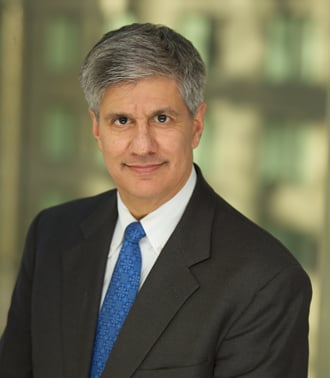Courts Remind Government and Relators of the True Meaning of Discovery in FCA Cases
Reported False Claims Act (FCA) decisions do not frequently concern discovery issues, particularly in cases based on alleged Anti-Kickback Statute (AKS) violations against healthcare defendants, which are not often litigated beyond dismissal motions. But two recent district court decisions in litigated AKS cases raise interesting issues regarding discovery against the government on causation and the geographic limits on discovery.
In the first case, United States ex rel. Fesenmaier v. Cameron-Ehlen Group, Inc., 2019 WL 6799795 (D. Minn. Dec. 13, 2019), the defendant sought a Rule 30(b)(6) deposition of the government on "the factual basis and methodology" behind the government's assertion that false claims "resulted from" alleged kickbacks. The government objected, claiming the topic was irrelevant because it need only show that a doctor "received a kickback and subsequently submitted a claim to Medicare during the 'taint period,'" which it deemed to be "presumptive[ly]" one year. Id. at *1. The defendant pressed the issue, seeking written confirmation from the government that it would rely solely on this so-called legal presumption to prove causation and not on any factual support that a claim actually resulted from a supposed kickback.
The district court, emphasizing that the AKS has a "causation element that the United States must prove," affirmed a magistrate's order requiring the government to provide a written statement addressing: (1) whether it is aware of any evidence of actual causation beyond deposition testimony; and (2) the basis for the government's contention that the taint period is one year or longer. Id. at *3. This is not the first time the government has blithely claimed it needs few, if any, facts to prove that a claim resulted from a kickback. See, e.g., United States ex rel. Arnstein v. Teva Pharmaceuticals USA Inc., 2019 WL 1245656, at *23 (S.D.N.Y. Feb. 27, 2019) (government argued that requisite causal link was established "by showing that a doctor who received a kickback thereafter wrote prescriptions for the relevant drugs"). This case therefore is worth watching to see how the government responds to these questions and how far it can go seeking to prove causation without actual facts.
In the second case, a New York district court denied a relator's motion to compel nationwide discovery against a defendant charged with paying doctors to refer patients via illegal joint ventures. In United States ex rel. CKD Project, LLC v. Fresenius Medical Care AG & Co., 2019 WL 6223828, at *1 (E.D.N.Y. Nov. 8, 2019), the issue was whether a relator "who identifies and alleges misconduct in one state or location, and merely alludes to misconduct elsewhere 'on information and belief' [can] obtain nationwide discovery to ferret out additional instances of misconduct." The court precluded relator from embarking on this fishing expedition, finding that broad discovery regarding all of the defendant's joint ventures "that share inculpating characteristics with the joint ventures specifically identified in the Complaint," was not proportional to the needs of the case and unduly burdensome. Id. at *2. After reviewing cases on the scope of FCA discovery, the court found the common thread was that "the discovery was limited to the universe of transactions about which the relator had knowledge or could plausibly allege were similar to those known transactions." Id. at *3. This is a good case to keep in mind when considering burdensome discovery demands that extend well beyond transactions alleged in a complaint.
© Arnold & Porter Kaye Scholer LLP 2019 All Rights Reserved. This blog post is intended to be a general summary of the law and does not constitute legal advice. You should consult with counsel to determine applicable legal requirements in a specific fact situation.

